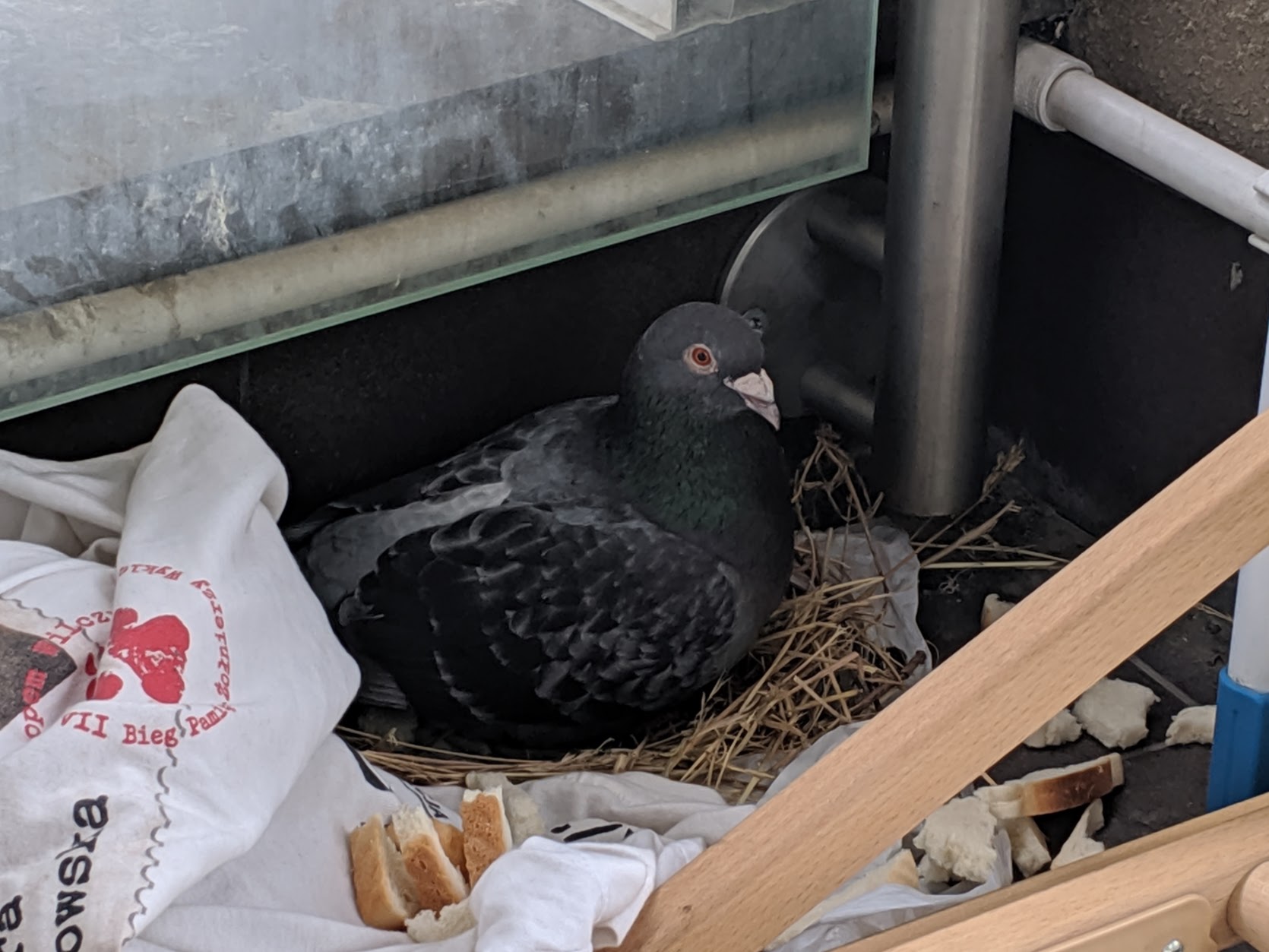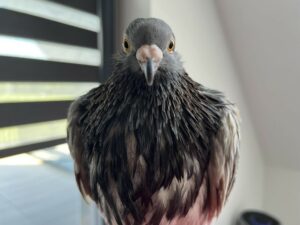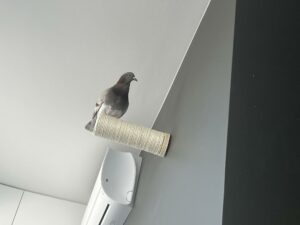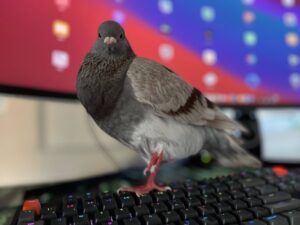Have you ever wondered why pigeons seem to love visiting your house again and again? It’s a common sight in many cities and towns – pigeons making certain spots their favorite hangout places. Let’s dive in and understand the mystery behind this.
Many reasons explain why these birds, with their soft coos and swift movements, decide to keep coming back. From finding food and safety to their knack for remembering places, pigeons have some interesting habits that draw them to our homes. Whether you’re curious or a bit frustrated with their frequent visits, we’ll explore what makes your house so special to them.
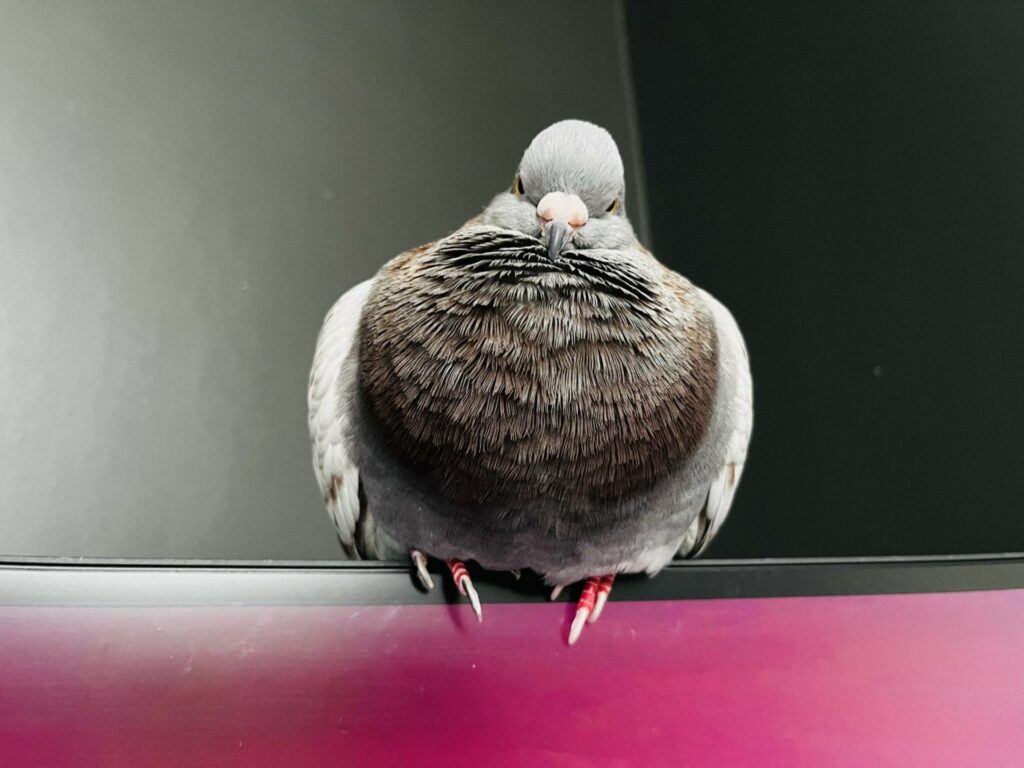
Why Do Pigeons Keep Coming Back to My House?
Natural Habitat and Nesting Preferences
Many of us often see pigeons hanging around our homes, rooftops, and balconies, leading us to wonder, “Why do they choose these spots?” Pigeons, like all animals, have specific reasons for the places they pick, often tied to their survival instincts. The relationship between the pigeon’s natural history and our modern buildings offers an intriguing explanation. In this section, we’ll explore the historical habitats of pigeons and how these relate to their current preferences in human-made structures.
A Glimpse into Pigeons’ Historical Homes
Before the rise of urban landscapes with skyscrapers, apartments, and homes, pigeons predominantly resided in wild, natural settings. Their favorite spots were cliff sides, caves, and rocky terrains. These high places provided them not only safety from ground-based predators but also a clear vantage point to survey their surroundings for threats or food. As humans began to build, especially tall structures, pigeons found these new constructions oddly familiar. Modern buildings, bridges, and other structures simulate the cliffs and terrains they’ve always known. So, if you’ve been thinking your house is a pigeon magnet, it’s probably because to them, it feels like a slice of their historical home in the middle of a city.
Check my article about Where Do Pigeons Live?
The Lure of Ledges and Eaves
Imagine you’re a pigeon. High above the ground, the breezy ledges and tucked-away eaves offer a perfect resting place, reminiscent of the cliffside nooks and crannies of ancient times. These spots provide them with the safety they need. Sheltered from harsh weather and out of reach from most predators, these architectural features of our homes serve as the ideal place for them to rest, nest, and even raise their young. Ledges give them a clear view of their surroundings, while eaves often offer warmth and protection. In essence, our homes and buildings have, unintentionally, been designed with features that are very pigeon-friendly, echoing the environments their ancestors thrived in.
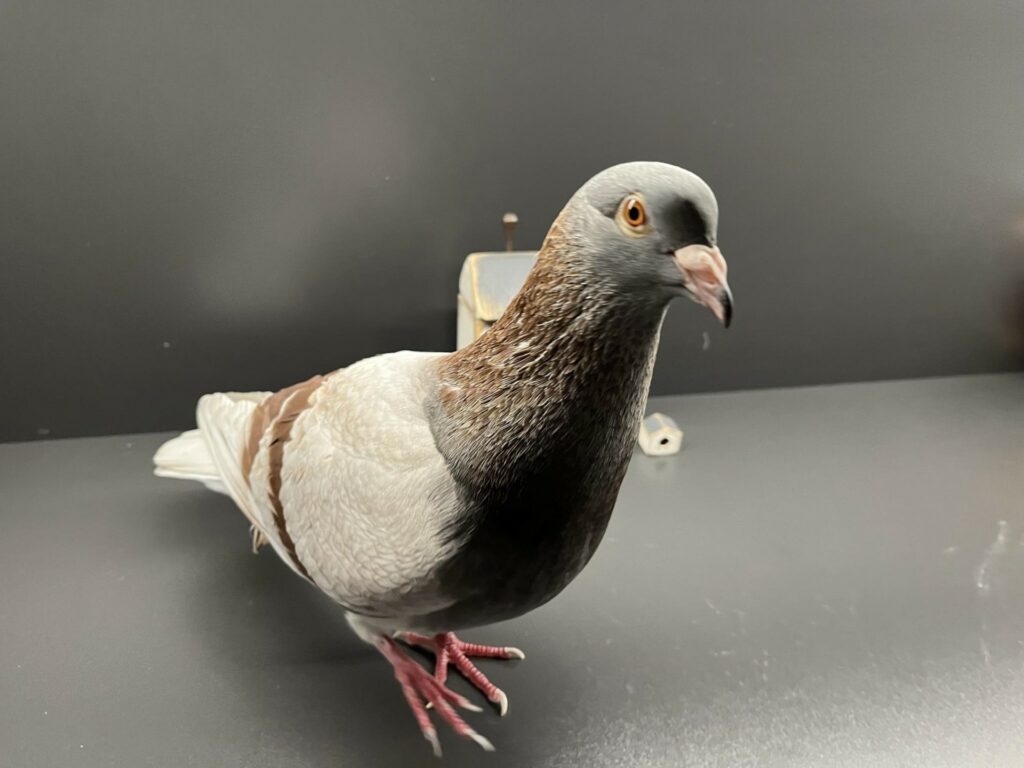
Availability of Food
We often see pigeons pecking away at crumbs on streets or gathering around certain spots in our neighborhoods. Ever wondered why? Food is a big draw for these birds. Like us, they too have their favorite hangout spots, especially if it promises a tasty treat. In this section, we’ll look into how food availability, whether intended or not, plays a huge role in attracting these feathery visitors to our homes.
The Call of a Meal – Intentional or Not
We might be the reason behind the frequent pigeon visits without even realizing it. Sometimes, it’s the food we intentionally give them, like tossing bread crumbs in our gardens or parks. But many times, it’s the unintentional feeding. Leftovers from picnics, accidentally spilled food, or even the grains we put out for other birds – they all act like a dinner bell for pigeons.
Pigeons and Their Remarkable Food Memory
One of the reasons we often see the same pigeons around is because of their incredible memory. Once they find a reliable food source, they’ll remember it. They have a kind of “mental map” that marks all the food hotspots. So, if a pigeon found some tasty morsels in your yard yesterday, chances are, it’s coming back for more, expecting another feast.
Common Temptations They Can’t Resist
- Bird Feeders: While we set these up for smaller songbirds, pigeons often swoop in for a bite.
- Open Trash Bins: For pigeons, our waste bins are like treasure chests. They often find food scraps that might not be useful for us but are a treat for them.
- Food Remains: That sandwich crust you dropped or the rice that fell off your plate during a backyard BBQ is a welcome meal for these birds. They’re always on the lookout, and even the tiniest food remains can attract them.
Safety and Shelter
Aside from food, one of the primary reasons any creature looks for a particular spot is for safety and shelter. Pigeons are no different. In the hustle and bustle of urban settings, our homes and buildings inadvertently offer these birds safe havens. Let’s delve into why pigeons often see our spaces as their protective sanctuaries.
The Safety of Human Structures
In nature, every creature has its predators, and pigeons are no exception. In the wild, they constantly have to watch out for threats. However, human-made structures, like our homes, buildings, and bridges, provide an escape from many of these dangers. These tall and sturdy constructs keep them out of reach from ground-based predators like cats or foxes. Moreover, being up high gives pigeons a strategic advantage, allowing them to spot any potential threats from a distance and take off if necessary.
The Need for a Consistent Home
Just like we find comfort in coming home after a long day, pigeons too look for consistent places to rest. The nooks and crannies in our buildings, the warmth of vents, or the sheltered space under an eave offer them a refuge from the elements. Whether it’s rain, wind, or the scorching sun, these spaces provide protection. Over time, as they get used to a particular safe spot, it becomes a regular resting place, and they’ll often return to it, driven by a natural instinct to seek shelter in familiar territories.
Social Creatures: The Flocking Instinct
Ever noticed a group of pigeons together on a rooftop or in a park? That’s no accident. Pigeons are social birds, and they often like to hang out in groups. This social behavior is more than just about companionship; it has a lot to do with survival. Let’s explore the ‘flocking’ nature of these birds and understand why they prefer company.
Pigeons: The Social Birds
Unlike some animals that prefer solitude, pigeons love being in groups. It’s not uncommon to see them flying, feeding, or resting together. There’s safety in numbers, and for pigeons, this is a way of life. Being in a group means many eyes on the lookout for danger. Plus, there’s the simple comfort of companionship. Just as we humans feel a sense of belonging and security when we’re with our loved ones, pigeons too thrive in the company of their kind.
The Signal of Safety and Bounty
When a pigeon spots a group of its peers in a specific area, it often interprets this as a sign that the location is safe or that there’s food nearby. Think of it like seeing a busy restaurant; we often assume it must be serving good food. Similarly, for pigeons, a gathering of their kind indicates a place of interest. If many pigeons are feeding in a spot, it’s a clear sign to others that there’s food available. And if they’re resting without any signs of distress, it’s a signal that the area is relatively safe from predators or other threats.
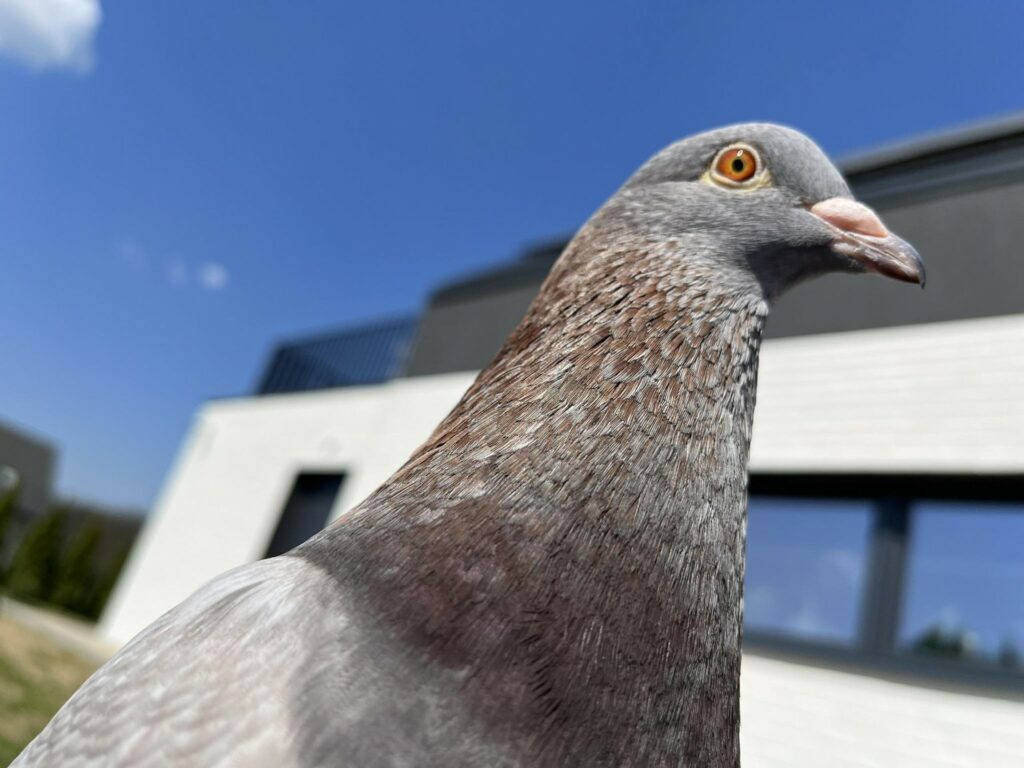
Routine and Homing Instinct
We’ve all heard tales of pigeons traveling vast distances and finding their way home with incredible accuracy. This isn’t just a thing of legend; pigeons genuinely possess a strong sense of direction and routine. In this section, we’ll uncover the mysteries of their navigation skills and why they seem to have favorite spots and paths they frequent.
Check my article about What Does It Mean When A Pigeon Comes To You?
The Pigeon GPS
Pigeons have a remarkable ability, almost like a built-in GPS, that allows them to recognize and return to familiar places. This homing instinct is both fascinating and complex. Some reasons for their exceptional navigational skills include:
- Magnetic Sense: Pigeons are believed to sense the Earth’s magnetic field, helping them determine direction.
- Visual Landmarks: They use familiar landmarks, such as buildings or natural formations, to navigate.
- Scent Cues: Recent studies suggest that pigeons might use their sense of smell to recognize familiar locations.
Creatures of Habit
Pigeons, like many of us, are creatures of habit. Once they’ve identified a safe and resourceful spot, they tend to return to it regularly. Here’s why:
- Consistency Equals Safety: Regular spots, be it for food or rest, are considered safe since they’ve been tested over time.
- Easier Navigation: Following familiar paths reduces the risks associated with exploring unknown territories.
- Energy Conservation: Sticking to known routes means less energy spent searching for resources or evading threats.
Breeding and Territorial Behavior
If you’ve been seeing the same pigeons around your space, especially during certain times of the year, it’s not just a coincidence. Pigeons, like many birds, have specific breeding behaviors and territorial tendencies. Let’s delve into why pigeons might choose the same spots repeatedly when it’s time to nest and raise their young.
Pigeon Love and Nesting
When it’s time to breed, pigeons seek out spots that are safe, sheltered, and offer a good vantage point. They are monogamous for a breeding season and sometimes for life. Pairs will work together to build nests, using twigs, leaves, and any other materials they can find. These nests aren’t just casual, temporary setups; they are the future home for their eggs and chicks.
Check my article about Do Pigeons Lay Eggs?
The Memory of a Good Nest
Ever heard the saying, “If it ain’t broke, don’t fix it”? Pigeons seem to live by this rule when it comes to nesting. If a particular nesting site proved to be safe and successful for raising chicks in the past, pigeons are likely to return to it. Why? Simply because it’s tried and tested. Reusing previous successful nesting sites reduces the risk and effort of finding and preparing a new spot.
This Is My Spot!
Territorial behavior plays a significant role in the repeated visits of pigeons to specific locations. Pigeons, especially breeding pairs, establish territories. They do so to ensure there’s enough food for themselves and their future chicks and to minimize disturbances during the breeding process. If you see pigeons frequently around a particular area of your home or garden, they might be signaling to other birds, “This is our territory!”. Defending these spaces and returning to them reinforces their claim, making it less likely for other birds to intrude.
Why Do Pigeons Keep Coming Back to My House? Final Thoughts
Pigeons are more than just city-dwellers fluttering about town squares or perching on our rooftops. They are creatures of habit, survival, and instinct. Their behaviors, from seeking shelter and food to breeding and defending territories, have evolved over millennia to ensure their survival in a rapidly changing world. By understanding their habits and the reasons behind their frequent visits, we can coexist harmoniously with these feathered neighbors. After all, they’re just trying to make a living, much like us.
Whether you’re a fan of pigeons or not, it’s hard not to admire their adaptability and tenacity in our urban jungles. So, the next time a pigeon lands on your balcony or windowsill, remember, it’s following age-old instincts in a modern world.
Why are pigeons attracted to human-made structures?
Pigeons find human-made structures reminiscent of their natural habitats, such as cliff sides and rocky terrains. Buildings and homes offer them safety, shelter, and vantage points similar to their wild environments.
Do pigeons have preferred nesting spots?
Yes, pigeons often prefer ledges, eaves, and other sheltered spots that resemble the nooks and crannies of cliff edges where their ancestors once nested.
What role does food play in attracting pigeons to my house?
Availability of food, both intentional and unintentional, plays a significant role. Pigeons remember reliable food sources and will repeatedly visit areas where they’ve previously found food.
Are pigeons social creatures?
Absolutely! Pigeons are social birds and prefer to stay in groups. Seeing other pigeons in an area can also act as a signal for safety or available resources.
What is the homing instinct in pigeons?
Pigeons possess an uncanny ability to find their way back to familiar locations, often across vast distances. This is due to their remarkable navigational skills which utilize magnetic sense, visual landmarks, and possibly scent cues.
How do pigeons establish their routines?
Pigeons are creatures of habit. Once they identify safe spots or resource-rich areas, they often stick to familiar paths and routines, returning to those spots regularly.
Do pigeons display territorial behaviors?
Yes, especially during the breeding season. Pigeons will often establish and defend territories to ensure a safe environment for nesting and raising their chicks.
Why do I see the same pigeons repeatedly, especially during certain times of the year?
Pigeons have a strong memory of successful nesting sites. If they’ve successfully raised chicks in a location, they’re likely to return to it for future breeding.
How can I deter pigeons from frequenting my property?
To deter pigeons, ensure there’s no easy access to food (like from open trash bins), use bird spikes or nets to prevent them from roosting, and avoid unintentional feeding.
Is there any harm in letting pigeons nest near my home?
While pigeons are generally harmless, their droppings can be unsightly and can cause damage to buildings over time. Additionally, pigeon nests might attract pests like mites. It’s always a good idea to manage where they nest to prevent potential issues.

